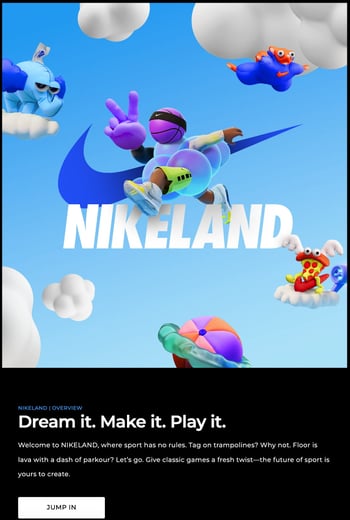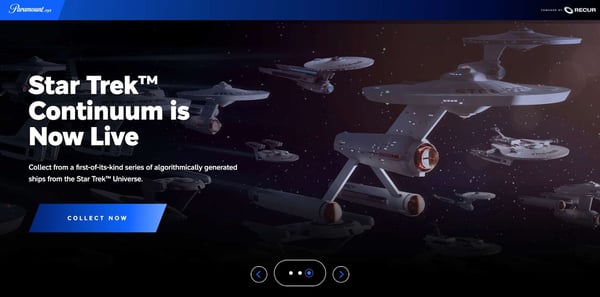Within the past two years, emerging technologies like NFTs and the metaverse have gotten a lot of hype. But how exactly are brands leveraging it? We’ll cover that and more in this article.
Plus, we’ll tackle where small businesses fit in this space and how they can leverage emerging tech.
Download Now: Free State of Marketing Report
[Updated for 2022]
Virtual Experiences
1. Patrón Spirits
In August 2022, Patrón held a virtual pop-up event in the Metaverse for a summer campaign.

This limited-time event, held on two consecutive weekends, was hosted on Decentraland, a virtual browser-based platform.
Participating users could visit three pop-up events dedicated to the brand’s three summer cocktails.
There was also a giveaway element in the virtual experience, in which users who collected badges through quests would be entered to win a trip and NFT wearables (virtual clothing and accessories used to dress up your avatar).
The benefit of hosting an immersive virtual pop-up event is that it’s accessible to all, which allows the brand to reach a wider audience. The metaverse is also a hot topic this year, so brands leveraging this technology can benefit from social buzz.
2. Nike
In late 2021, this shoe brand joined the virtual world by introducing Nikeland.

Made in partnership with gaming platform Roblox, Nikeland invites users to get their bodies moving.
On the website, they say Nikeland gives “classic games a fresh twist.” While the target audience is the younger generation, anyone who likes gaming can enjoy Nikeland.
What’s in it for Nike? Well, users play these games while styled in Nike gear – from shoes to clothes and accessories. This serves as a subtle marketing play to promote active products from the brand.
NFTs
3. Paramount

Creating its own NFT marketplace, Paramount allows users to collect NFT ships from the Star Trek Universe.
The company has faced some backlash with some fans arguing that Star Trek and NFTs do not align, namely due to the environmental impact.
The brand has since released additional NFT collections from popular shows and TV shows, such as Top Gun, Rugrats, and Hey! Arnold.
AI
4. Airbnb
Everyone tells you “content is king” but what we don’t talk about enough is how much time and how many resources creating high-quality content takes.
For both small and large companies, content is a large investment that usually offers long-term value rather than short-term benefits. As a result, brands will often neglect this area.
What’s great about these AI writing tools is that they take the legwork out of writing and allow you to focus on polishing instead of building from scratch.
Companies like Airbnb, Coursera, Google, and Logitech all leverage artificial intelligence to support their content marketing efforts.
How to Use Experimental or New Technology on an SMB Level
These days, it seems like everyone is talking about web3, the metaverse, and NFTs. This may cause some panic among small business owners who feel they’re not able to keep up.
So, for small businesses, there’s no pressure to jump into the metaverse quite yet.
Small brands may not have the large resources to launch NFT collections and host virtual events. However, they can embrace experimentation and try new things in ways that align with their brands.
Take luxury retail brand. In 2020, fashion brands weren’t able to host fashion shows to showcase new designs.
In May, the brand went live on Instagram and hosted an innovative 3D fashion show debuting their new capsule collection.
Each garment was seen in 3D as invisible models strutted down the runway against a black backdrop, creating a stunning show.




